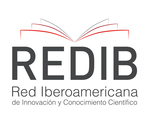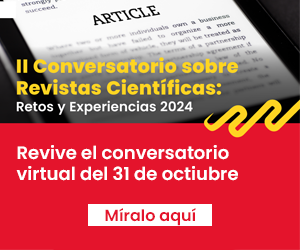Editorial policy
The Revista de Neuro-Psiquiatría (RNP) (Journal of Neuro-Psychiatry – RNP, by its acronym in Spanish) is a publication sponsored by the Alberto Hurtado Faculty of Medicine (FMAH) of the Peruvian University Cayetano Heredia (UPCH). It is a specialized journal in the field of neurosciences, neurology, psychiatry and mental health; it is peer-reviewed, open access, edited and published quarterly from the FMAH-UPCH. The RNP receives unpublished manuscripts in Spanish, English and Portuguese, which have not been submitted in parallel to other journals, and which contribute to the academic debate on psychiatry, neurology, neurosciences, mental health, behavioral sciences, child psychiatry and pediatric neurology. It is organized in sections according to the following forms of publication: editorial, original article, review article, special article, short communications, case reports, letters to the editor and in memoriam.
E-ISSN: 1609-7394
Scope
The RNP is aimed at undergraduate and graduate students and teachers, researchers with interest in neurosciences, neurology, psychiatry and mental health.
Periodicity
The periodicity of the RNP is quarterly, structured in volumes with four annual issues published during the year:
- January-March (first issue)
- April-June (second issue)
- July-September (third issue)
- October-December (fourth issue)
Ethical publication policies
RNP adheres to the international and national ethical standards that regulate the academic production in the field of health sciences, which are declared in its Ethical publication policies.
Corresponding author
Communication between the authors of a manuscript and the journal shall be through a single author (hereinafter, «corresponding author») designated to actively maintain the dialogue between the parties, while the phases of submission, evaluation, comments and publication remain in force.
For the identification of authorship and contribution of authors, see the ICMJE recommendations.
Manuscript evaluation
All manuscripts submitted to RNP are first reviewed by the Editorial Committee, which has the power to reject them upon this first evaluation. All manuscripts under the editorial form (journal sections) «Original article», «Short communications», «Review articles», «Case reports», «Special article» and «Neuropathological clinical case» sent to the journal, receive, without exception, a "double-blind refereeing" treatment, in which the authors do not know the name of the reviewers, nor do the reviewers know the name of the authors. The author of correspondence should verify that there is no explicit or implicit mention of the authors, or any information that violates anonymity.
Manuscripts shall be evaluated by at least two external reviewers, who shall be able to determine that the manuscript has been evaluated:
- Approved
- Approved with modifications. Authors shall have a period of no more than four (4) weeks from the journal's communication to resolve the observations. Should more time be required, an extension may be requested. If corrections are not made by the deadline, the manuscript shall be rejected.
- Rejected
Manuscripts written under another editorial form accepted by the journal («Editorial», «Letter to the editor» and «In memoriam») do not receive this review; however, the Editorial Committee shall make its own judgment on the relevance or observations they may deserve.
In both cases, the journal shall issue its verdict within a period of no more than three months through the corresponding author.
Scientific integrity
Prior to evaluation by the Editorial Committee, all manuscripts are subjected to originality verification of their content using Turnitin software, accepting a maximum of 20% similarity with respect to sources that have been correctly cited and referenced, excluding bibliographic references. If the manuscript is found to exceed this percentage, it shall be returned to the authors for rewriting or proper citation. The manuscript will be rejected if plagiarism or any other lack of scientific integrity: scientific misconduct and unethical practices in research, is identified; in addition, the Editorial Committee will communicate the misconduct to the authors and their institutions of affiliation. If the case arises, the retraction of articles is contemplated.
Open access
RNP adheres to the Open Access movement, so its contents are freely accessible without restrictions to the end user. Likewise, it does not impose fees for the submission or publication of a manuscript. RNP is subject to the Creative Commons Reconocimiento 4.0 Internacional, which allows the use of the journal's contents without requesting permission from the author and preserving its intellectual property.
Copyright
Authors assign their rights to the RNP so that may disseminate the article through the means at their disposal. The journal will provide forms of affidavit of authorship and authorization for the publication of the article, which shall be submitted with the manuscript.
Authors retain the right to share, copy, distribute, perform and publicly communicate their article, or part of it, mentioning the original publication in the journal. Authors may archive in the repository of their institution:
- The thesis from which the published article derives.
- The pre-print version: version prior to peer review.
- The post-print version: final version after peer review.
- The final version or final version created by the editor for publication.
Pre-publication test
All manuscripts approved for publication shall be proofread prior to layout of the text. The corresponding author shall be provided with a proof of the diagrammed text in PDF format for careful review and to point out possible errors. The correspondent undertakes to return the proof within 48 hours; if there is no modification, he/she shall also communicate this within the deadline. In case RNP does not receive any communication in this respect, the test PDF will be considered as accepted.
Disclaimer of liability
The statements, judgments and opinions expressed in the articles published in RNP correspond exclusively to the authors.
Information security and preservation
As an information security policy, UPCH generates biweekly backup copies of the digital files and metadata of all the articles published in RNP, storing them in a server external to the journal. RNP also uses the CLOCKSS and Internet Archive systems to create a permanent storage system of the journal for preservation and restoration purposes.
Advertising
RNP does not receive or promote advertising of products or services outside the publishing entity.
Updated August 25, 2024















 RNP is distributed under a
RNP is distributed under a 